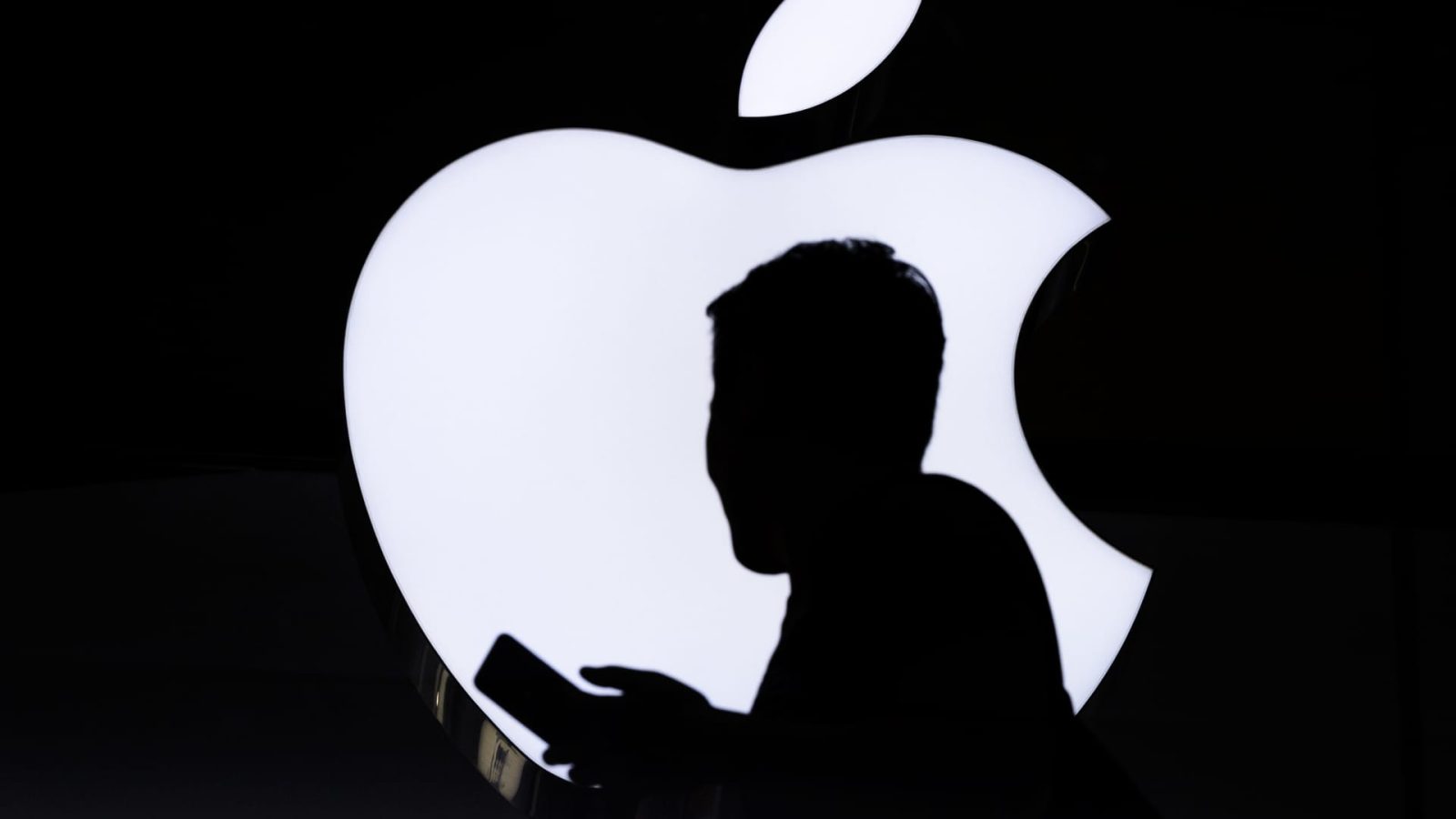The continued sell-off in Apple (AAPL) shares on speculation about a Chinese crackdown on iPhone usage among government workers should not scare investors away from the Big Tech name. Jim Cramer said Thursday he stands by the Club’s “own it, don’t trade it” designation on Apple, which was on a two-session losing streak that wiped out more than $200 billion in market value in the stock. The selling started Wednesday after The Wall Street Journal reported that the Chinese government was telling its workers not to use iPhones or any other foreign devices at work or even bring them into the office, in a new step to reduce that country’s reliance on Western technology. Neither China nor Apple has said anything official about the report. However, if true, it’s still unclear how this would potentially impact iPhone sales in China, the world’s second-largest economy and where Apple derives 19% of its total revenue. That’s because we don’t know how many people would be prohibited under such a ban. Essentially, investors shouldn’t jump the gun because there are a lot of questions here. “If I really felt like a disaster was coming, I would suspend” our mantra of “own it, don’t trade it” on Apple stock, Jim Cramer said during the Club’s Morning Meeting on Thursday. “When I source it, I don’t get it,” he said of the reports, adding that his social media contacts in China indicate people there are still “buying Apple [iPhones] like crazy.” Jim said there were no indications of any bump in foot traffic at Huawei’s China stores. Chinese tech giant Huawei, which faces trade restrictions in America, unveiled its latest smartphone during last week’s visit to China by U.S. Commerce Secretary Gina Raimondo. “Apple is in the doghouse right now” because the Chinese government isn’t pleased with the way Raimondo’s trip went, Jim speculated Thursday afternoon. While Beijing previously restricted some Chinese officials from using iPhones, the order has apparently been broadened. Bloomberg said it confirmed the Journal’s reporting and added that such restrictions could extend to millions more people in China. The rumors have sent Apple shares into a tailspin over the past two trading sessions, losing more than 3% on Wednesday and another 3%-plus Thursday. Apple did not immediately respond to CNBC’s request for comment. AAPL YTD mountain Apple (AAPL) year-to-date performance In a research note on Wednesday, Bank of America said Apple would not be largely affected by any ban among Chinese government workers, citing an upbeat setup ahead of the company’s highly-anticipated unveiling of the iPhone 15, which is expected to happen at an event this coming Tuesday. “We believe that positives of new product launches are offset by the risks of a weaker consumer spending backdrop,” according to the note, led by analyst Wamsi Mohan. Elsewhere, Wedbush Securities’ Daniel Ives says the market’s reaction is “way overblown.” The analyst said that a potential ban would equate to a hit of less than 500,000 units out of the approximate 45 million devices he forecasts to be sold in China over the next 12 months. “Despite the loud noise, Apple has seen massive share gains in [the] China smartphone market,” Ives wrote in a Thursday note. Still, there’s some downside protection here. While 19% of Apple’s revenue comes from China, more than 43% comes from the Americas and some 25% comes from Europe, according to the company’s latest quarter earnings report . Apple is also extending efforts into emerging economies such as India, which like China has roughly 1.4 billion people. Apple has been moving some of its supply chain out of China to offset the risks of growing geopolitical tensions between the U.S. and the Chinese government. The Club maintains that Apple is going to remain a premium brand in China that buyers with money are going to look to purchase regardless of speculation around Chinese government rules. (Jim Cramer’s Charitable Trust is long AAPL. See here for a full list of the stocks.) As a subscriber to the CNBC Investing Club with Jim Cramer, you will receive a trade alert before Jim makes a trade. Jim waits 45 minutes after sending a trade alert before buying or selling a stock in his charitable trust’s portfolio. If Jim has talked about a stock on CNBC TV, he waits 72 hours after issuing the trade alert before executing the trade. THE ABOVE INVESTING CLUB INFORMATION IS SUBJECT TO OUR TERMS AND CONDITIONS AND PRIVACY POLICY , TOGETHER WITH OUR DISCLAIMER . NO FIDUCIARY OBLIGATION OR DUTY EXISTS, OR IS CREATED, BY VIRTUE OF YOUR RECEIPT OF ANY INFORMATION PROVIDED IN CONNECTION WITH THE INVESTING CLUB. NO SPECIFIC OUTCOME OR PROFIT IS GUARANTEED.
The continued sell-off in Apple (AAPL) shares on speculation about a Chinese crackdown on iPhone usage among government workers should not scare investors away from the Big Tech name.
Read the full article here









Leave a Reply